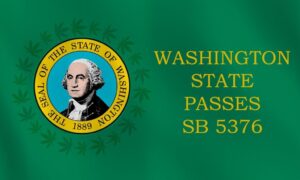Brandi Atkins, an Arizona resident, and former dancer, was diagnosed in late 2015 with a rare autoimmune disease that made her joints and muscles swell, causing chronic pain. She popped in and out of the hospital with a cornucopia of prescription medications handed out to alleviate her pain, ease her symptoms, and navigate around her type 1 diabetes. These medications would often clash with her disease and cause her blood sugar to soar. In desperation, she turned to medical marijuana.
Almost immediately, Adkins noticed an improvement in balance, palatable reduction in pain, and (most importantly) hope for her future. The dispensary she visited took the time to understand her specific concerns, her goals, and the particulars of her health conditions. Thanks to medical marijuana, Adkins feels like she can dance again.
This hopeful scenario plays out in dispensaries across Arizona, where more than 100,000 patients suffering everything from epilepsy to chronic pain find relief through medical marijuana.
It’s an interesting situation: legalized medical marijuana and dispensaries in one of the United States’ most conservative territories. How do these conflicting events coexist? Have you ever wondered what exactly is the state of medical marijuana affairs in Arizona? Here’s our in-depth explanation of everything you always wanted to know about Arizona’s Medical Marijuana Laws (but were too afraid to ask).
The road to marijuana legalization in Arizona
When the federal government originally passed the Marihuana Tax Act of 1937, the predecessor to the Controlled Substances Act of 1970, all American states had criminalized cannabis in one way or another. It wasn’t until the mid-1990s that Arizona state legislators began listening to decades-long calls for marijuana law reform.
In 1996, Arizona passed Proposition 200, allowing doctors to prescribe medical marijuana (specifically, controlled substances) to treat diseases or relieve pain in seriously/terminally ill patients. In order for a patient to use medical marijuana, a doctor had to provide scientific evidence to prove marijuana’s usefulness along with a second doctor’s opinion to the Arizona Department of Health Services. This caused conflict between supporters and opponents of medical marijuana, and started a lengthy battle over the law’s lack of specificity in addition to the language “prescribe.” For a doctor to prescribe medicine, the substance must first undergo FDA trials and doctors must specify the exact dosage and consumption methods to be used. Unfortunately, this rendered Prop 200 illegal on a federal scope and a medical marijuana program never materialized. It did, however, protect first-time drug offenders from prison sentences, which was a step towards decriminalization.
Arizona tried once more to legalize medical marijuana in 2002 with Proposition 203, but the initiative failed, receiving 42.7% of the vote. A viable solution was not presented and approved until nearly a decade later.
In 2010, Arizonans voted to approve a much-revised version of Proposition 203, an initiative to legalize the medicinal use of marijuana. Proposition 203 authorized doctors to recommend cannabis as a therapeutic option, as opposed to prescribing a specific dosage of cannabis with strict consumption or application methods. This law also tasked the Arizona Department of Health Services (ADHS) to regulate the “Arizona Medical Marijuana Act.”
Link To Read The Rest Of The Article – Marijuana.com





































